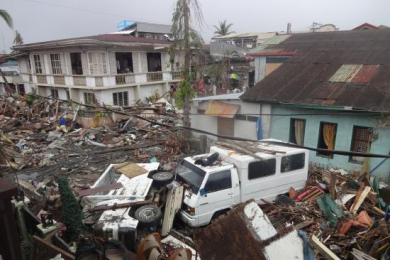The United Nations Office for Outer Space Affairs is pleased to announce the “United Nations International Conference on Space-based Technologies for Disaster Risk Reduction – Building Resilience Through Integrated Applications”. The Conference will take place in Beijing from 23 to 25 October 2017. The conference is organized by the UN-SPIDER Beijing Office and follows six conferences held since 2011. Previous conferences covered the themes of “Best practices for risk reduction and rapid response mapping” in 2011, “Risk assessment in the context of global climate change” in 2012, “Disaster risk identification, assessment and monitoring” in 2013, “Multi-hazard disaster risk assessment” in 2014, “A consolidating role in the implementation of the Sendai Framework on Disaster Risk Reduction 2015-2030” in 2015 and “Understanding disaster risks” in 2016.
These conferences have offered a forum for disaster management communities and experts to strengthen their capabilities in using space-based information to identify, assess, monitor and respond to disaster risks and integrate space technology into long-term disaster risk management efforts.
The conference will build upon the outcomes of the 5th and 6th UN-SPIDER Conferences (2015 and 2016 respectively) in Beijing that are documented in the form of two reports - A/AC.105/1102 and A/AC.105/1130 - submitted to the Scientific and Technical Subcommittee of the Committee on the Peaceful Uses of Outer Space (COPUOS) in 2016. It will discuss the role of Earth observation in the implementation of the Sendai Framework on Disaster Risk Reduction 2015-2030.
The up-coming conference aims to provide recommendations for combined and complementary uses of space-based technologies and in-situ information in disaster risk reduction applications. It will also create an avenue for improved partnerships in the efforts to integrate use of space technologies in single and multi-hazard early warning systems, including those focusing on climate-influenced disasters such as floods and droughts. In addition, the event is expected to provide ideas and thoughts on the development of integrated applications of Earth observation, global navigation satellite system and telecommunication constellations for disaster risk reduction and climate change monitoring and mitigation/adaptation, promoting integrated development where relevant. Furthermore, the conference will provide input to UNISPACE+50, which will contribute to the 2030 Agenda for Sustainable Development, the Sendai Framework for Disaster Risk Reduction 2015-2030 and the Paris Agreement stemming from COP21.
The recommendations of the conference will be compiled in the form of the report which may be made available to the Scientific and Technical Subcommittee of COPUOS in 2018. It will also provide valuable inputs to the United Nations/Germany International Conference on International Cooperation Towards Low-Emission and Resilient Societies taking place from 22-24 November in 2017, Bonn, Germany.
An international training course "Integration of Multisource Earth Observation Data for Disaster Damage Assessment” will be organized for 25 participants of the conference with the support of the Asia Pacific Space Cooperation Organisation, the National Disaster Reduction Centre of China and the Beihang University.
Registration for the conference is open until 28 August through the following website: https://register.unoosa.org/civicrm/event/info?reset=1&id=88

